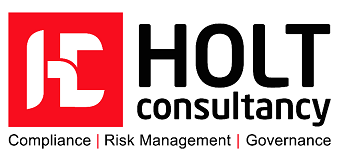On
the 20th of March 2017, the Dubai International Financial Centre (DIFC) issued Consultation
Paper No. 1 (“CP 1”) in which a number of significant changes were proposed to
the existing DIFC Companies Law regime (“Existing Law”), replacing it with a
new DIFC Companies Law (DIFC Law No. 3 of 2017, the “Proposed Law”). These
changes were proposed with a view to enhancing the Existing Law to meet
international standards and best practices. These amendments are expected to have
an impact on both regulated as well as non-regulated companies incorporated in
the DIFC and will also be of interest to those that wish to incorporate a
company in the Centre.
The
new Companies Regulations will also be introduced pursuant to the changes being
made to the Companies Law. The proposed draft of the new Companies Regulations
is expected to be published for consultation following consideration of public
comments on the Proposed Law.
This
article provides a brief insight into some of the significant changes proposed
in CP 1.The deadline for providing comments on CP 1 to the DIFC is 19 June 2017.
New
classification of companies:
The
Proposed Law will create a distinction between Public and Private Companies
(something that is not present in the Existing Law) and provide a different set
of rules and requirements for each. The rationale behind this is indicated as
introducing a more stringent regime and requirements for Public Companies as
investment from the public can be sought for such entities, and reducing the
level of regulation for Private Companies where public investment cannot be
sought.
The following are the key differences, in the
Proposed Law, between Private and Public Companies:
Private Company
|
Public Company | |
|
Shareholders
|
Maximum of 50
|
Unlimited
|
|
Directors
|
At least 1
|
At least 2
|
|
Company Secretary
|
Not required
|
Required
|
|
Financial Statements
(It
is to be noted that the section on Accounts, Reports and Audit in the
Proposed Law will not apply to DFSA regulated entities)
|
Should prepare annual accounts but is exempt from having them
audited, and filed with the DIFC Registrar of Companies (Registrar), if the
Private Company does not have more than 20 shareholders and an annual
turnover not exceeding USD 5,000,000.
|
Should prepare and maintain accounts that are to be audited by
external Auditors. A copy of the audited accounts should be presented at the
General Meeting, and provided to the
shareholders as well as the Registrar. They should also be accompanied by a
Directors’ Report.
|
|
Annual General Meeting
|
Not required
|
Should hold one annually
|
The
Proposed Law also seeks to do away with the concept of Limited Liability
Companies (LLCs) that operate under the Existing Law and transitional
arrangements for this will be put in place. Recognised Companies (i.e. foreign
companies conducting business through a branch in the DIFC) will be
grandfathered into the new regime, subject to substantially the same requirements
under Existing Law.
Enhanced directors’
duties:
Duties of directors are significantly enhanced
under the Proposed Law. The following seven aspects are discussed in CP 1 as
being owed by the directors of a company to the company itself:
(a) the duty to act in accordance with the constitutional documents of the company;
(b) the duty to act in a way that is considered (in good faith) to promote the success of the company;
(c) the duty to exercise independent judgement;
(d) the duty to exercise reasonable care, skill and diligence;
(e) the duty to avoid situations that could create a conflict between the interests of the director and that of the company;
(f) the duty not to accept gifts or benefits from third parties capable of creating a conflict of interest; and
(g) the duty to declare any interests, directly or indirectly, in a proposed or existing transaction or arrangement.
Enhancements
to the Registrar’s powers:
The
Proposed Law seeks to introduce important enhancements and clarifications to
the powers of the Registrar. Some of these include indicating the objectives
that the Registrar should pursue in performing his functions, clarification on
the different types of permissions that the Registrar can issue, and
introducing ‘due process’ procedures to bring about transparency in
administrative decision making.
Disclosure
of beneficial ownership:
In
line with international standards in the fight against money laundering, tax
evasion and financing of terrorism, companies will be required, under the
Proposed Law, to disclose their ultimate beneficial owners to the Registrar.
Such information will, however, not be made available to the public.
Whistle-blower
protection:
In
line with OECD directives in this regard, the Proposed Law seeks to offer protection
and immunity (against civil liability, dismissal, etc.) to any person who
discloses to the Registrar or a company’s auditor or director, any information
relating to a reasonable suspicion that the company has, or may have,
contravened the companies law regime.
Other
miscellaneous amendments:
Some of the
other miscellaneous enhancements indicated under the Proposed Law include:
ii. introduction of more formal pre-emption rights, to safeguard shareholders from dilution of rights;
iii. provisions against the use of a company name which is misleading, deceptive or conflicting with the name of another entity and an obligation to change the name within 30 days of becoming reasonably aware of having a misleading/ deceptive name; and
iv. express prohibition against firms to conduct business in the DIFC unless they are duly registered and hold a valid Commercial Licence issued by the Registrar.
HOLT consultancy is experienced in helping clients establish and operate in the DIFC. Please contact the team at HOLT consultancy by email using info@holtconsultancy.com or by phone on +971 4 386 6360 to discuss your requirements.




